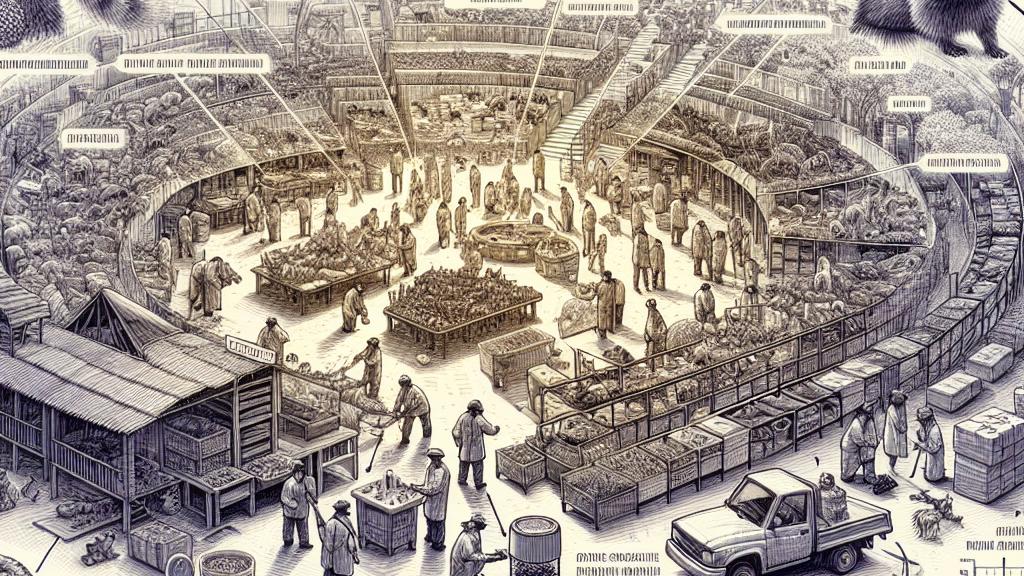New Evidence Supports Theory of Covid-19 Originating from Chinese Market
Overview
- A significant new study provides compelling evidence that Covid-19 likely originated in the Huanan Seafood Market in Wuhan, China.
- The research reveals a substantial presence of wildlife DNA at the market, aligning closely with the onset of the pandemic.
- With strong scientific consensus emerging, the focus shifts back to animal origins amid ongoing debates over the lab-leak theory.

Evidence from Wuhan
A recent study has brought renewed attention to the Huanan Seafood Market in Wuhan, where the first Covid-19 cases were detected. This thorough examination analyzed over 800 samples taken from various surfaces within the market, uncovering a striking presence of DNA from wild mammals, particularly raccoon dogs and civets. These animals can harbor closely related coronaviruses, suggesting they played a pivotal role in the virus's transition to humans. For instance, the analysis revealed that surfaces used for handling these animals tested positive for the virus, indicating a potential spillover event. Additionally, the genetic evidence coincides remarkably with the timing of the initial outbreak, suggesting a strong link between the market's wildlife trade and the pandemic's emergence, capturing global scientific interest and prompting further investigations.
Dispute Between Theories
The origins of Covid-19 remain a contentious subject, igniting vigorous debate among scientists and policymakers. On one hand, the theory of zoonotic spillover—transmission of the virus from animals to humans—gains traction as new evidence surfaces. However, the lab-leak theory still casts a long shadow, particularly due to the proximity of the Wuhan Institute of Virology, which conducts research on coronaviruses. Notably, recent studies, including those conducted by international teams, seem to tilt the balance towards the market as the most plausible site of origin. Brought to light by the WHO’s ongoing investigations, the emphasis on comprehensive studies into both theories highlights the complexity of unraveling Covid-19’s origins. Experts advocate for an unbiased approach to investigating both possibilities, but the overwhelming data favor the notion that wildlife stalls in the Huanan market were hotbeds for initial infections, warranting significant scrutiny.
Implications for Future Pandemics
Comprehending the origins of Covid-19 is imperative, not only for historical analysis but also for shaping future public health policies. This research underscores an urgent need for enhanced wildlife trade regulations to prevent potential zoonotic spillovers. For example, regulating the sale of live wild animals and promoting conservation efforts can significantly reduce the risk of similar outbreaks. Additionally, increased global cooperation is essential to monitor and manage animal health effectively. As experts continue to examine the implications of these findings, one thing is clear: we must learn from this pandemic to prepare for the future. Ensuring that our systems are resilient and adaptive will serve to protect public health in an increasingly interconnected world. Ultimately, understanding the dynamics of virus transmission between species is crucial in our quest to safeguard humanity against future health crises.

Loading...